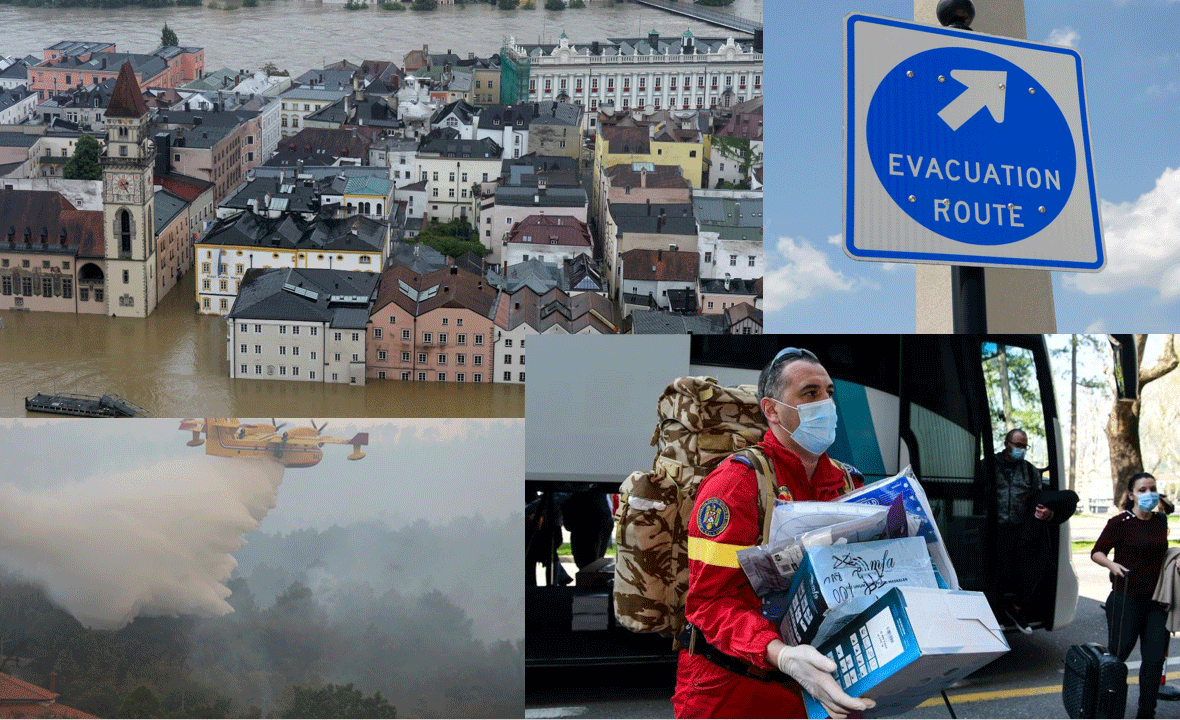Which risks particularly affect border regions, and how best to tackle them? A study on the available instruments and possible improvements is now available.
- 05 April 2024

In the last decades, Europe has experienced increasingly frequent and severe natural disasters due to climate change. The 2022 wildfire season, for instance, was particularly severe in a number of European Member States, making joint coordination, preparedness and response to climate change consequences more urgent than ever.
Risks are not limited to natural disasters and Europe needs to build up its resilience to respond to risks arising from cyber-attacks, the spread of viruses and future pandemics, among others.
By their very nature, all these risks and crises defy national borders and thus call for cross-border approaches to disaster risk management (DRM).
The Border Focal Point team of DG REGIO is about to publish a study on Strengthening the resilience of EU border regions: Mapping risks & crisis management tools and identifying gaps, developed in cooperation with DG ECHO and Technopolis group.
The study's overall aim is to identify the risks to which cross-border regions are exposed and the existing agreements and tools available for competent authorities and stakeholders to prevent and respond to disasters in a cross-border context. The study identifies gaps in policies, agreements or tools that prevent effective cross-border risk and crisis management and provides recommendations on how to address them. Furthermore, the study collects good practices that can serve as inspiration to other cross-border regions to enhance their cross-border DRM capabilities.
The preliminary results of the study were discussed during the 16th Beyond Borders: Breakfast Debate on How can cross-border risk & crisis management enhance EU resilience? The recording of the debate is available online here.
More information
If you want to find out more about the topic, you can subscribe to the Border Focal Point Network!
